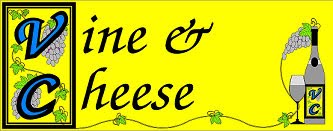Last Friday we cut into a Mimolette, that intriguing canteloupe-like bowling ball of a cheese from France. Once cleaved revealing its electric-orange interior, all in attendance chimed in with "Cheddar!" even though I repeatedly said "Mimolette". Little did I know at the time that Mimolette's distinctive color is shared with English Cheddars that use the same natural additive, Annatto.
Annatto is derived from the tropical/subtropical tree, Achiote, native to Brazil, but because of its utility, is now grown in Central America, Africa, and Asia. Achiote produces pods filled with inedible oily red seeds, which when the shells have been grated, yield the food coloring, Annatto. Cheeses using Annatto remain confined to English Cheddars and Mimolette although Velveeta and American cheese, oddly enough, also use it.
Apart from food coloring, Annatto also imparts a sweet, nutty, nutmeg-like flavor to foods and that comes through in Mimolette, which can be marketed when aged between two months and two years. Like wine, with aging comes complexity. Salt and pepper are always there in the Mimolette flavor profile along with some semblance of chocolate and/or fudge, and with age comes sweet caramel and hazelnut. Also with age, the orange color tends to brown a bit.
So this cheese is clearly a complex centerpiece for the dinner table...but it didn't start that way. Mimolette was created in the 17th century during a time of discord between France and Holland. Flanders was a location in northern France that had just been been claimed by Holland at the time. Flanders is also where the great Edam cheeses originated. The French king at the time forbade Edam-loving Frenchmen from purchasing Edam thereby causing the creation of a new Edam knockoff, Mimolette, in nearby Lille, France. While Mimolette follows the same recipe as Edam, as we have seen here in the past, the cheese turned out differently in the new locale, and over time changes like the addition of Annatto and cheese mites would alter it further.
(Did he just say the addition of "cheese mites"?)
It's true! At some point in time cheese makers in northern France decided to allow cheese mites, which ordinarily gnaw at the outside rind of aged cheeses while they ripen, to intentionally do their business on Mimolette rinds. Ordinarily aging cheeses are washed with brine to keep the varmints off the cheese. In Mimolette's case, it was learned that the mites' actions were effectively aerating the cheese as it ages resulting in earthier flavors. Unfortunately the cheese becomes dustier and more pock-marked by this action until the finished product resembles a moonscaped old cannonball, not the most appetizing cheese to behold.
Between 2013 and 2014, our FDA denied the importation of Mimolette into the country over the cheese mite issue. Even though there was no historical evidence of ill effects in French people from eating Mimolette, it was thought that people with food allergies in this country could be affected. Mimolette had been imported into America for twenty years prior to the one year ban so one would think something empirical must have caused the ban. In any event, the French cheese makers now vigorously wash, hand brush, and blast the cheeses with air hoses to remove the critters which apparently is enough to satisfy the FDA.
Please join us this Friday between 5 and 8pm when Taylor Moore of Eagle Rock Distributing presents Chilcas and Valdivieso Chilean wines for our tasting consideration. Valdivieso is making a return to the Atlanta market with Eagle Rock after a brief absence while Chilcas has become established at least at this store as one of the true gems out of Chile.
On Saturday the 28th starting at 1pm, David Rimmer of Lynda Allison Cellar Selections will present new wines to his portfolio. David has some of the finest European wines in the Atlanta market so don't miss this roll out!
Then on Friday the 6th of March, David Hobbs of Prime Wine & Spirits joins us with the Central Coast wines of Eberle Winery of Paso Robles. Eberle is known for their Rhone-style reds but we'll taste the whole line which I thought were great!
Monday, February 23, 2015
Subscribe to:
Post Comments (Atom)




No comments:
Post a Comment